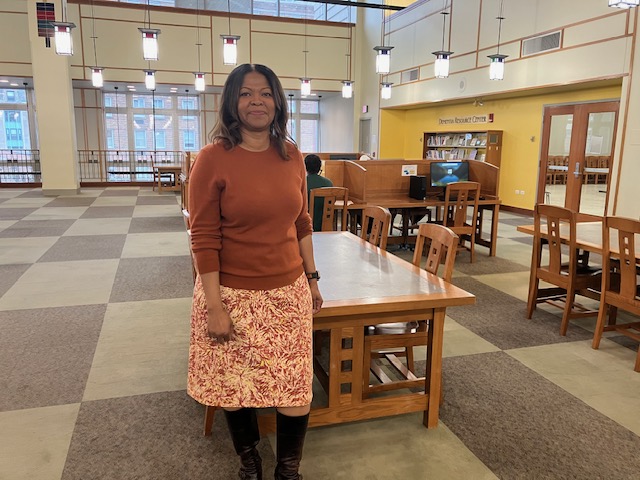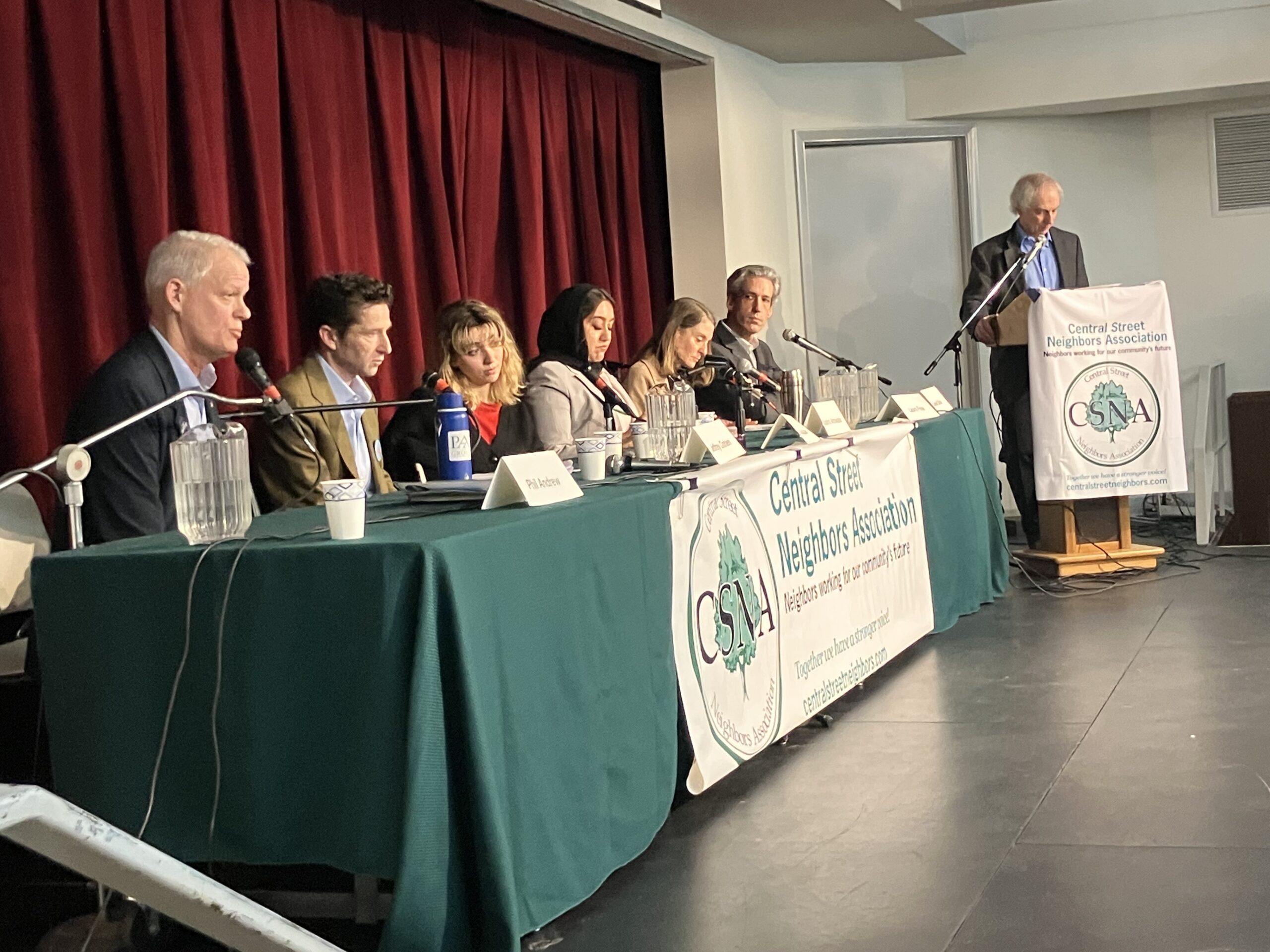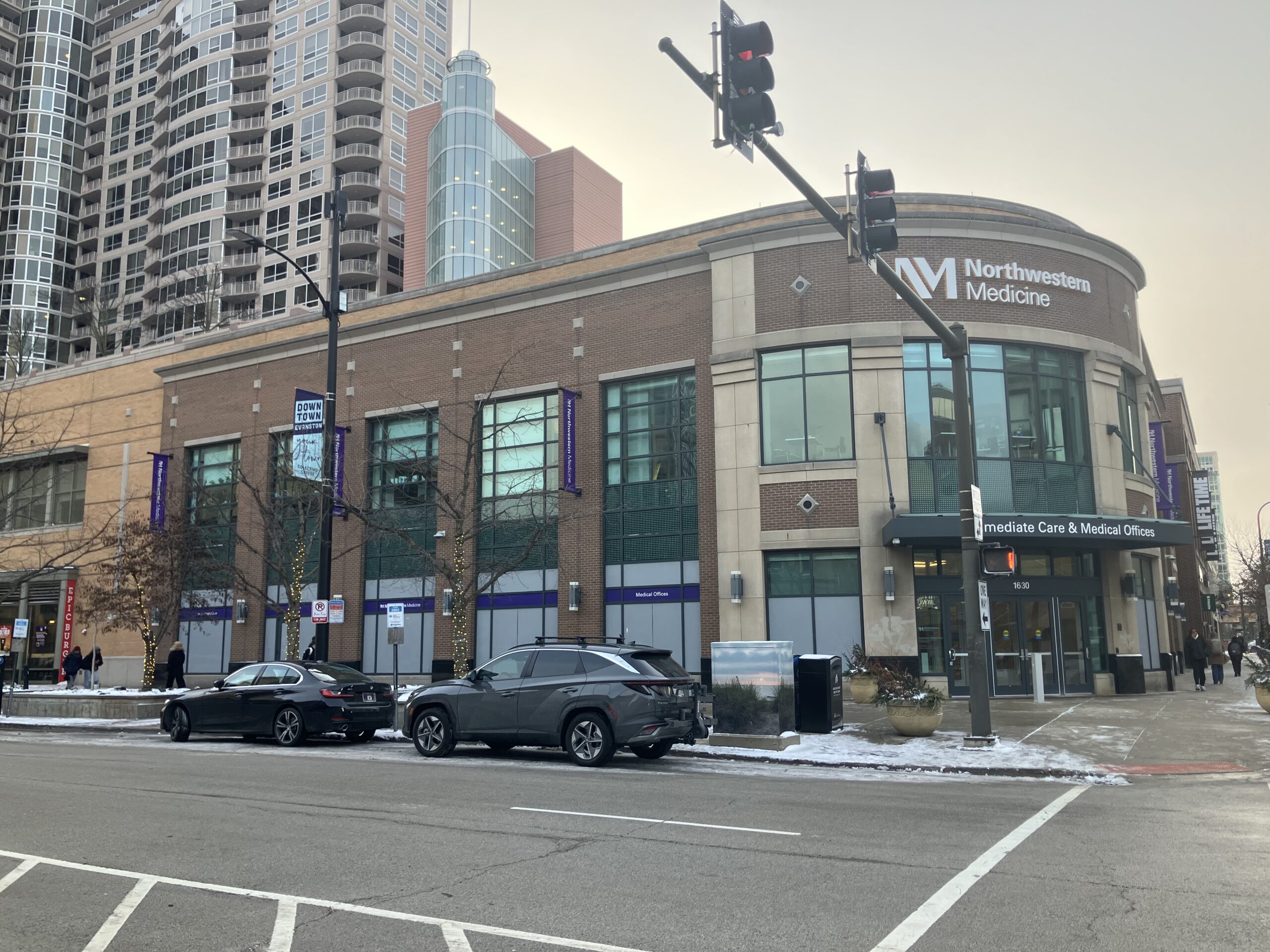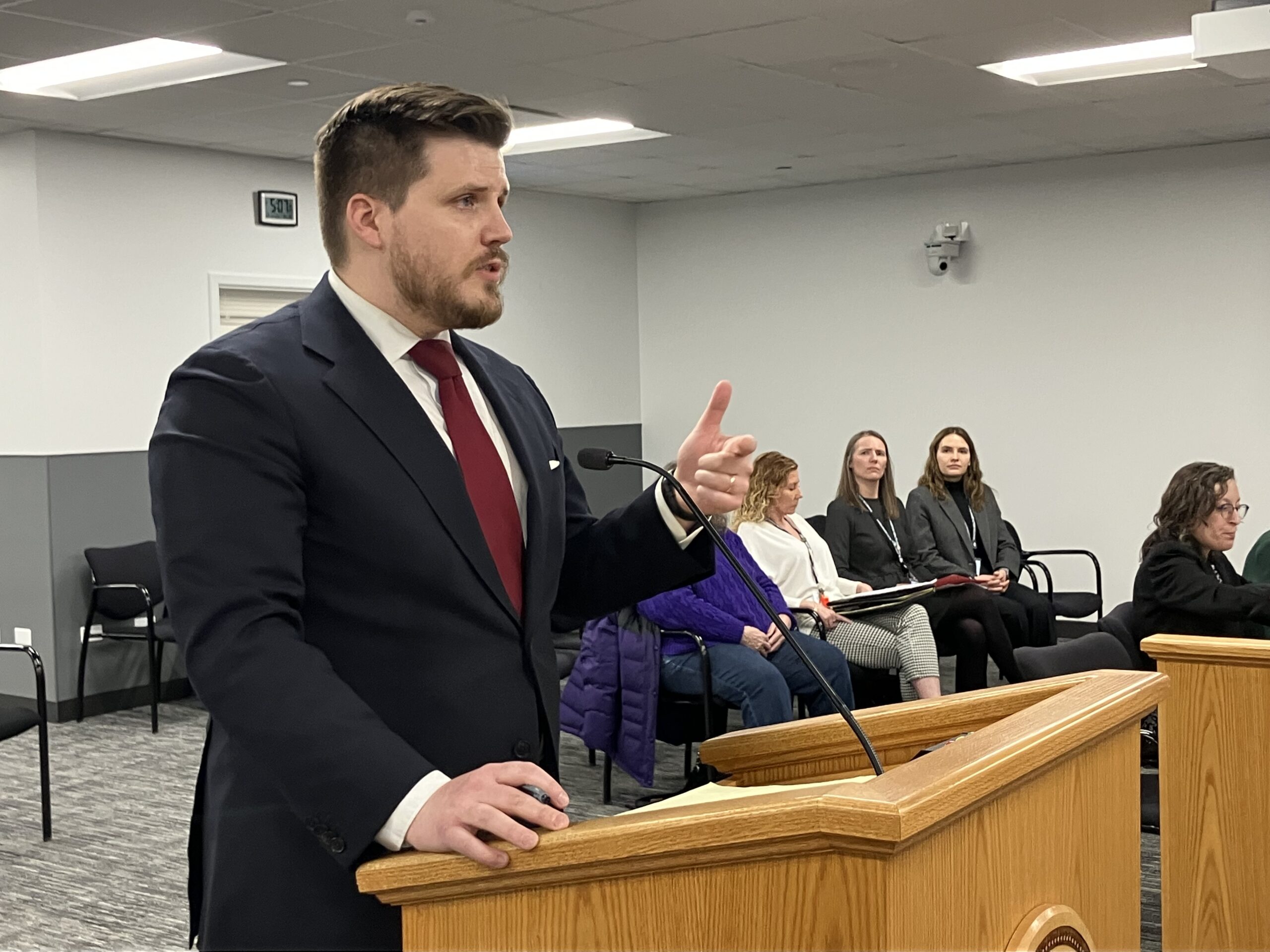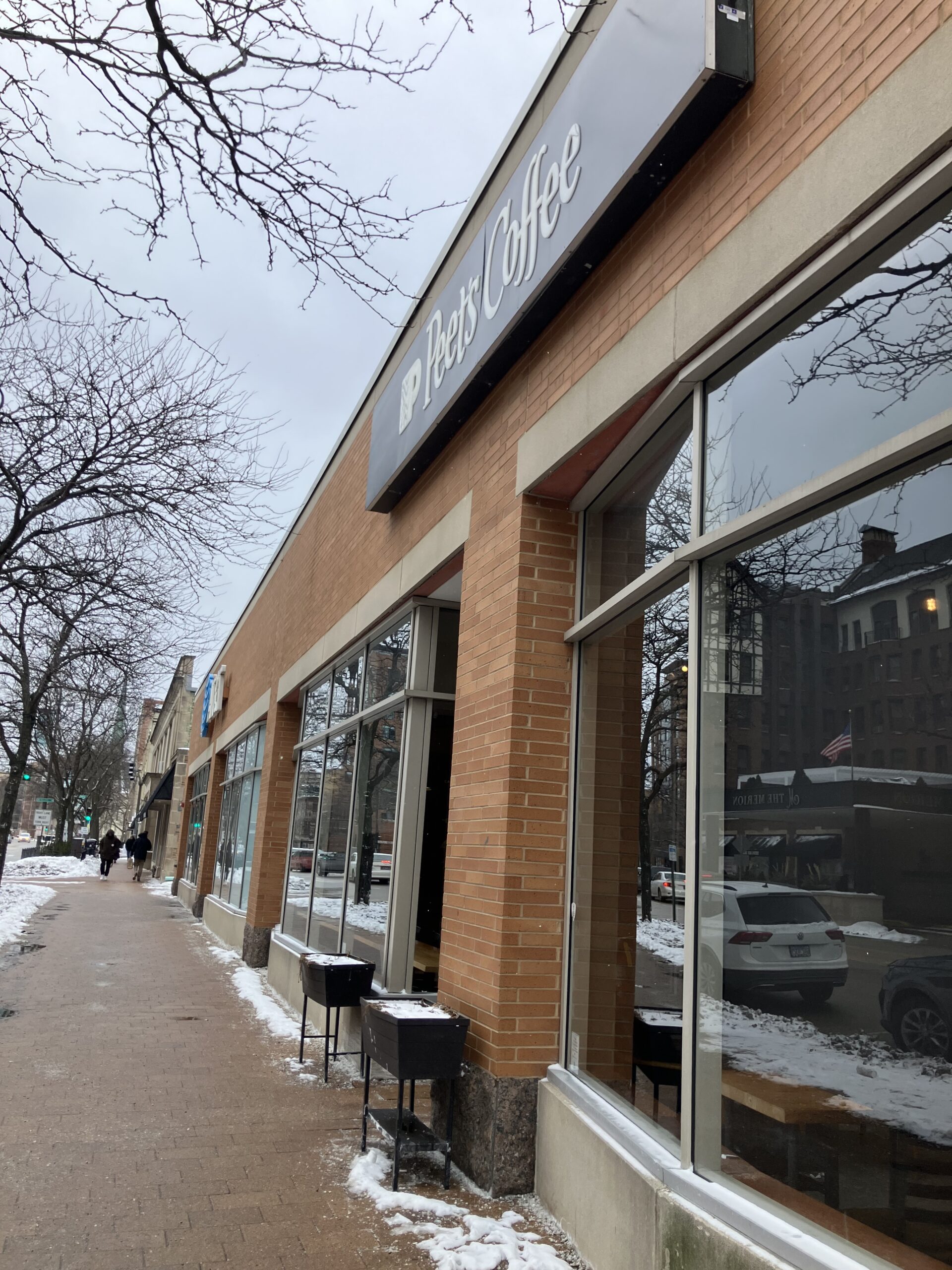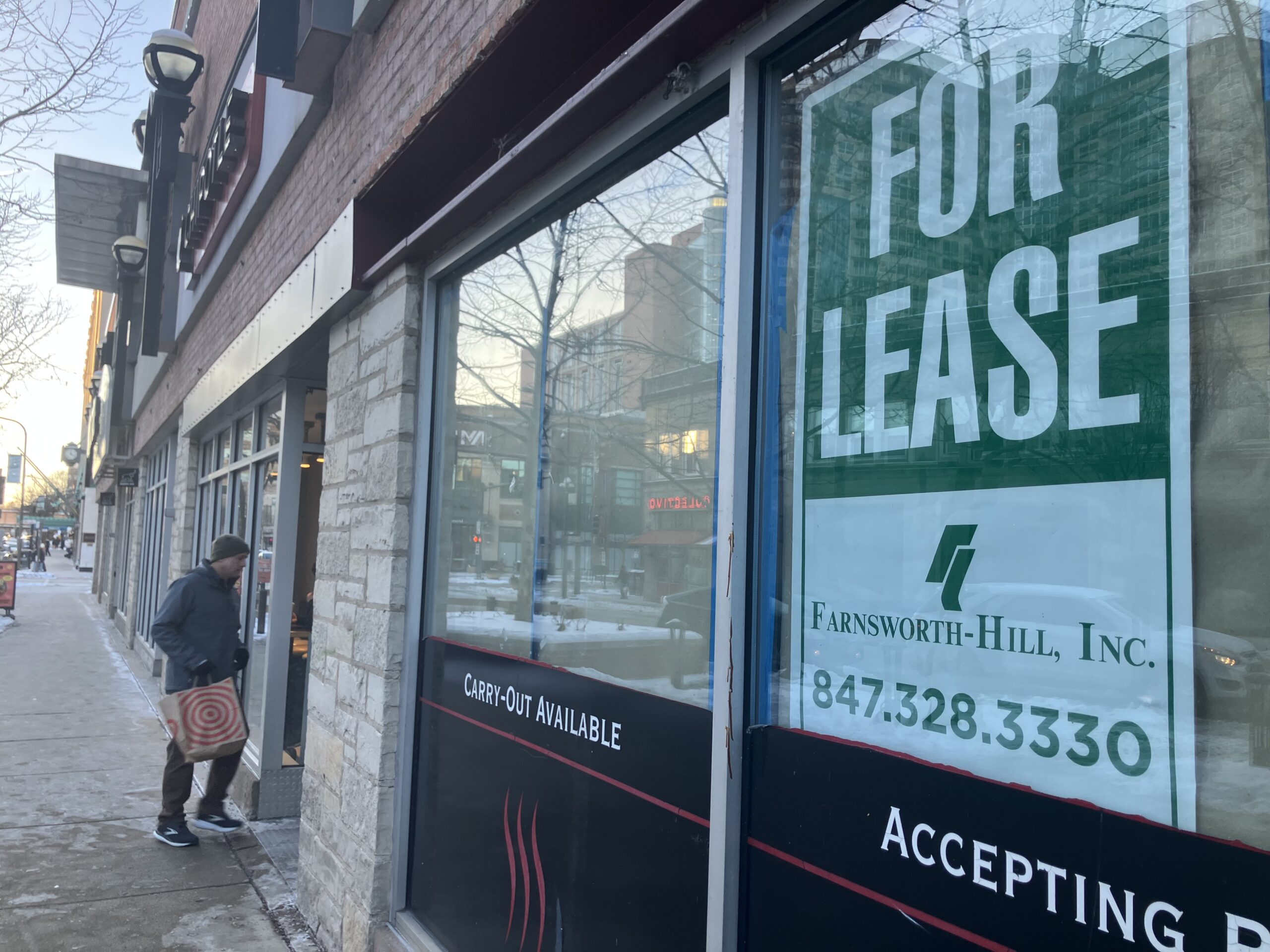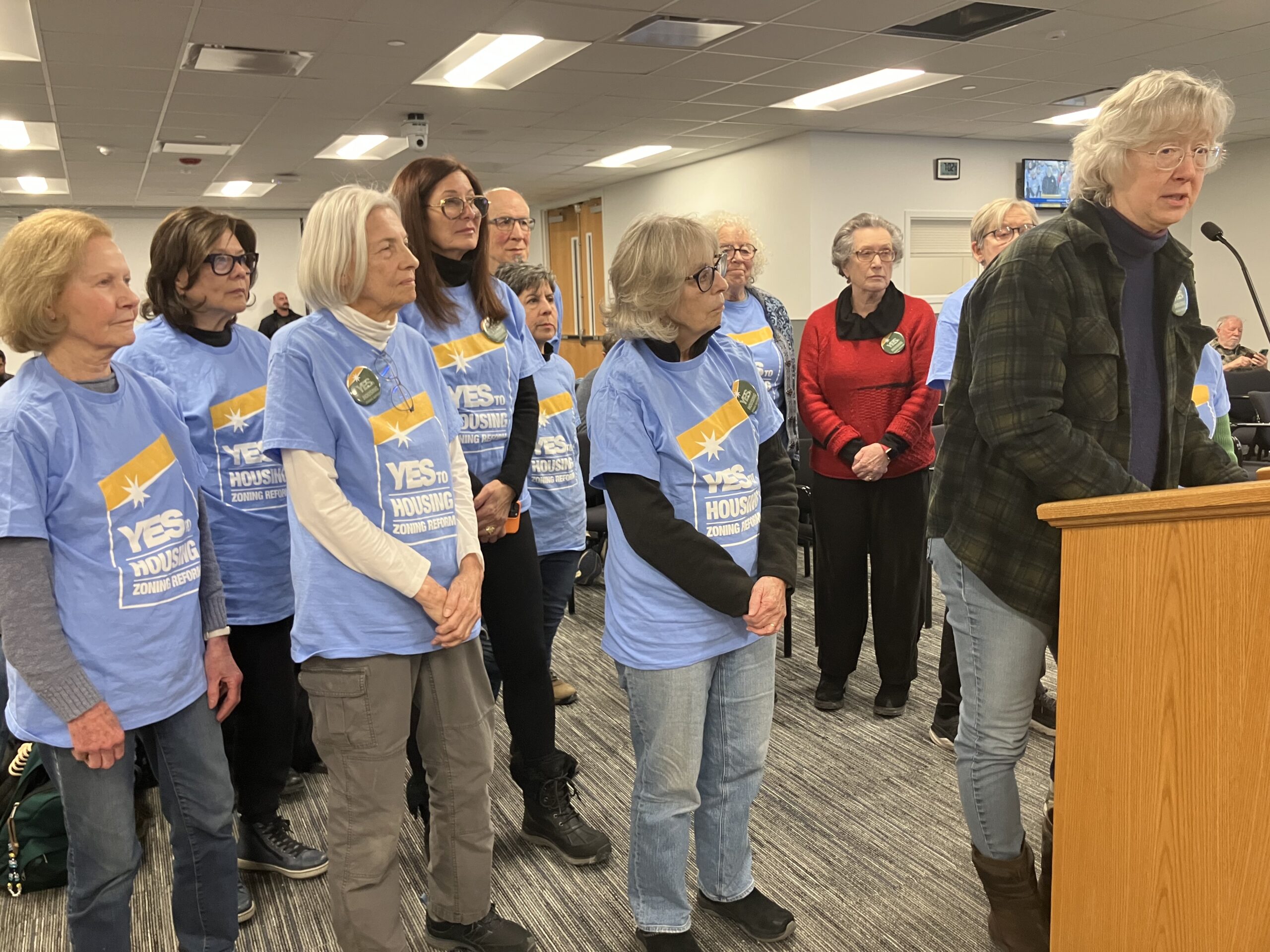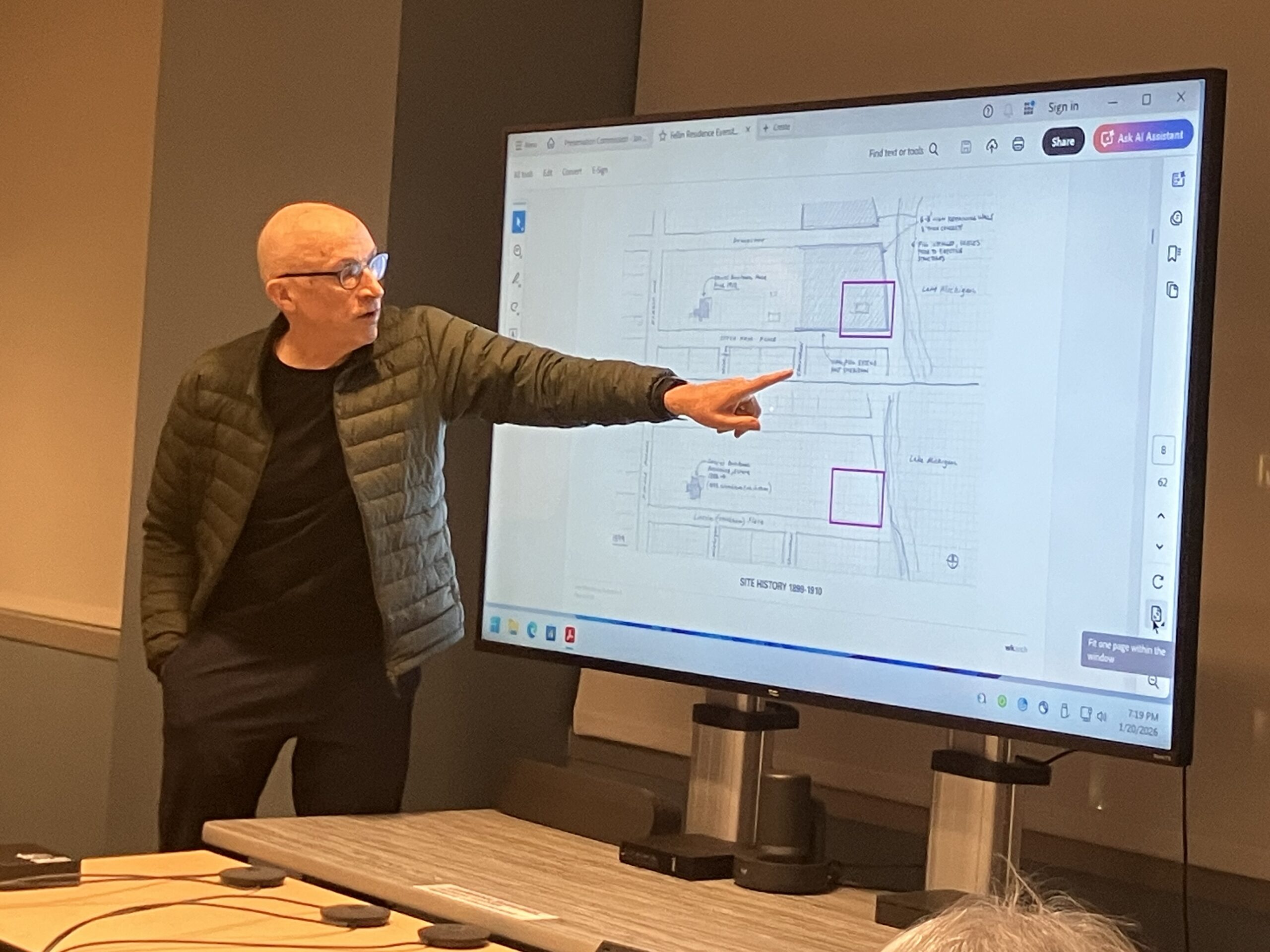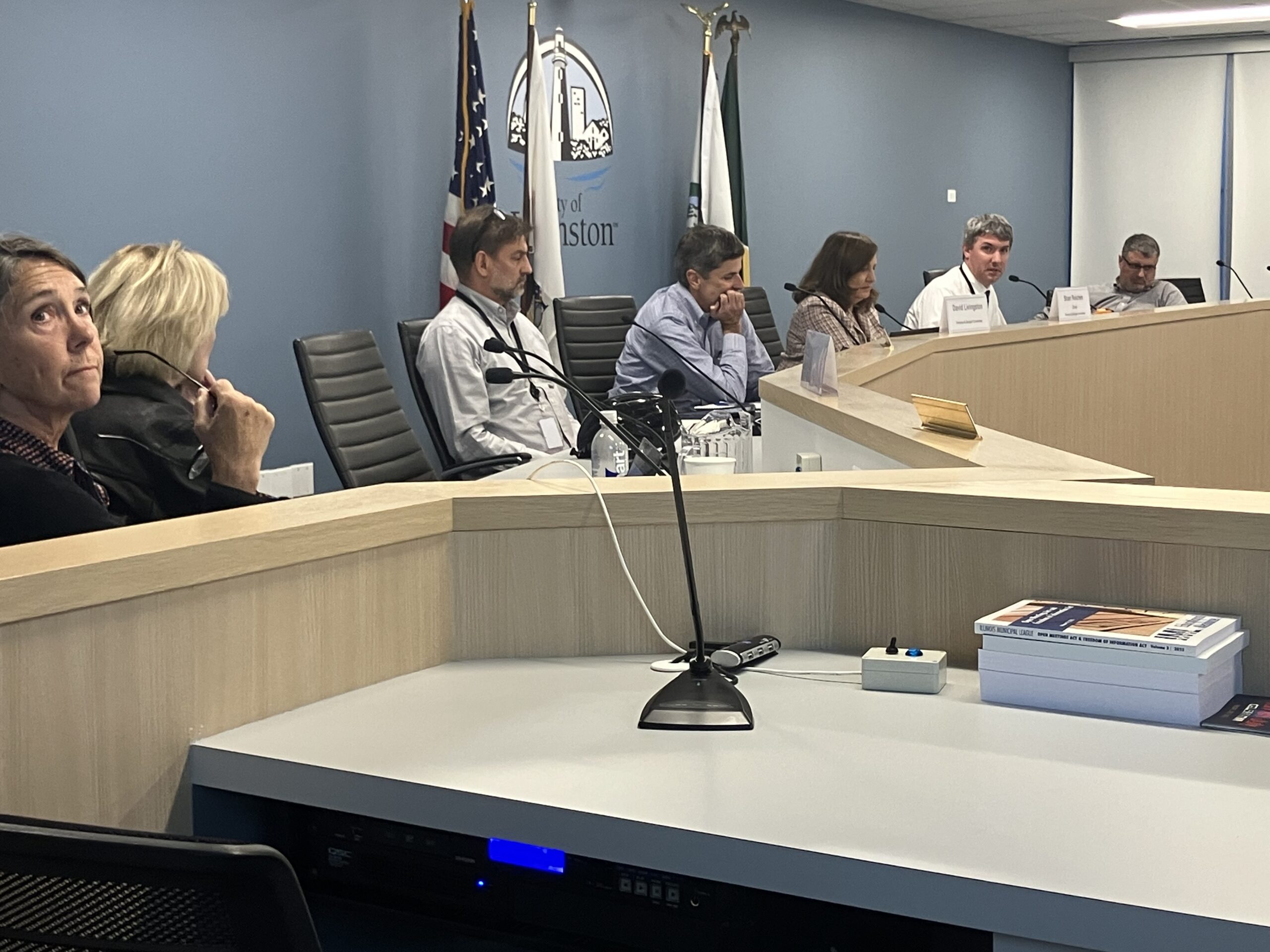By Bob Seidenberg
City officials are still researching the questions, but found some basis to support Evanston Public Library officials’ claim that the library may be due some of the Personal Property Tax revenue generated since the late 1970s.
The issue came up in a discussion during the city’s Finance & Budget Committee meeting Tuesday on a proposal to establish an escrow fund to deposit funds from the tax — which climbed to close to $6 million in annual revenues at one point — dedicating that money to meet the city’s stiff public pension contributions.
In 2023, with the committee playing a leading role, Evanston City Council members committed to putting long underfunded pensions for public safety employees and their families on a 100% funding track to meet state obligations by 2040, entailing nearly $30 million in annual contributions to the police and fire pension funds.
At Tuesday’s meeting, new Seventh Ward Councilmember Parielle Davis, in a proposal co-referred by Councilmembers Clare Kelly, (1st Ward) and Matt Rodgers (8th Ward) called for the city to create an ordinance that PPRT taxes support pension obligations and be put in escrow.
“Escrowing pension-directed PPRT prevents future councils from using those funds for short-term needs,” Davis said in a memo to the committee in support. Furthermore, the action would ensure “consistent contributions to underfunded pensions systems, a key factor in improving funded ratios.”
In discussion at the committee meeting, finance officials cited the need for flexibility with the money, which now goes into the General Fund, which in turn, supports the bulk of city operations.
‘How would it help?’
“How would it help?” Chief Finance Director Hitesh Desai asked committee members about establishing an escrow account for the funds, “because you are already taking away money from the General Fund, which is already in a dire state.”
Desai also referred to the library’s recent claim for a share of the tax, established by the state in the late 1970s to replace money cities lost when their authority to impose personal property taxes on corporations and other business entities was taken away.
James Rachlin, adviser on the library’s effort to gain an intergovernmental agreement with the city, maintained that his research showed that the library is entitled to a share of the revenue and that library officials should be prepared to take remedies if they [the city] fail to do so.”
Desai told the committee that the city’s corporation counsel is researching the matter. He noted that the library’s share of the tax was around 10 to 11 percent when the city started receiving revenues in 1978.
Committee member Leslie McMillan asked for a clarification of the issue. “My understanding is that it’s not an obligation to fund the library, it’s discretionary.”
‘Not discretionary:’ Ruggie
Corporation Counsel Alexandra Ruggie, participating in the meeting remotely, pressed for an opinion, responded that “the way I read in my interpretation, it’s not discretionary,” and that under the Library Act of 1978, “we will have to utilize that same percentage of PPRT [given to the library originally] to give to the library.”
Councilmember Rodgers, one of the councilmembers who made the referral for the escrow question to be considered, admitted to some confusion, “because if it’s something that’s required, are we doing it now?”
Desai said that was not the case. Before the library adopted its current Library Fund model in 2010, the library was considered a part of the city, and its funding covered under the General Fund.
Committee member David Livingston said that since the General Fund, which receives PPRT money, has been expending resources in support of the library, that might be something to consider.
Escrow account a ‘clear, easy source’ to track, Kelly says
Desai said both the city and library agree that the city was providing services during that time. “But we don’t agree on the amount. If you put it in monetary terms, is it about half a million or $2 million worth?”
“And that’s what we’re debating,” he said, noting efforts between the two parties to come up with some kind of memorandum of understanding.
Kelly, a councilmember and committee member, said it is her understanding “that we’re under absolutely no obligation to give any of our PPRT to our component library,” asking Ruggie for further clarification.
“I think the main issue here is … we need to find the revenue streams and this is a normal revenue stream to apply towards the full funding” of pensions.
She said the idea of the escrow account is “so that there’s a clear easy source, so that we can all keep track … so that it protects the full funding into the future. I say why stop at PPRT? I’d like us to find maybe a couple of other revenue streams that we know every year will be earmarked towards filling that gap from 90% to 100% funding.”
Desai said that was not the case. Before the library adopted its current Library Fund model in 2010, the library was considered a part of the city, and its funding covered under the General Fund.
Committee member David Livingston said that since the General Fund, which receives PPRT money, has been expending resources in support of the library, that might be something to consider.
Escrow account a ‘clear, easy source’ to track, Kelly says
Desai said both the city and library agree that the city was providing services during that time. “But we don’t agree on the amount. If you put it in monetary terms, is it about half a million or $2 million worth?”
“And that’s what we’re debating,” he said, noting efforts between the two parties to come up with some kind of memorandum of understanding.
Kelly, a councilmember and committee member, said it is her understanding “that we’re under absolutely no obligation to give any of our PPRT to our component library,” asking Ruggie for further clarification.
“I think the main issue here is … we need to find the revenue streams and this is a normal revenue stream to apply towards the full funding” of pensions.
She said the idea of the escrow account is “so that there’s a clear easy source, so that we can all keep track … so that it protects the full funding into the future. I say why stop at PPRT? I’d like us to find maybe a couple of other revenue streams that we know every year will be earmarked towards filling that gap from 90% to 100% funding.”
He said the big benefit of full funding is that the city’s contribution will drop substantially approaching that date, “from $30 [million currently] to something like $10 or $15 [million].”
The action is necessary he said, “to what i think was irresponsible behavior in the past,” referring to the city’s underfunding.
“So we are making up for lost time and there will be a payback,” he said.
Shari Reiches, committee chair, also noted past steps taken by the group and staff, including a “big compromise” by Desai and his team to include the amount of PPRT the city was devoting to pensions on a spreadsheet.
She noted that in her service on the Illinois Board of Investments, “we never discussed the stream of the funds coming in. We just received the funds.”
Kelly responded that “this is a finance and budget committee representing our resident,” and that the arguments she has made are about protecting residents into the future.
The committee ended the discussion without taking a vote, with Rodgers moving that the matter be tabled to a later date.
